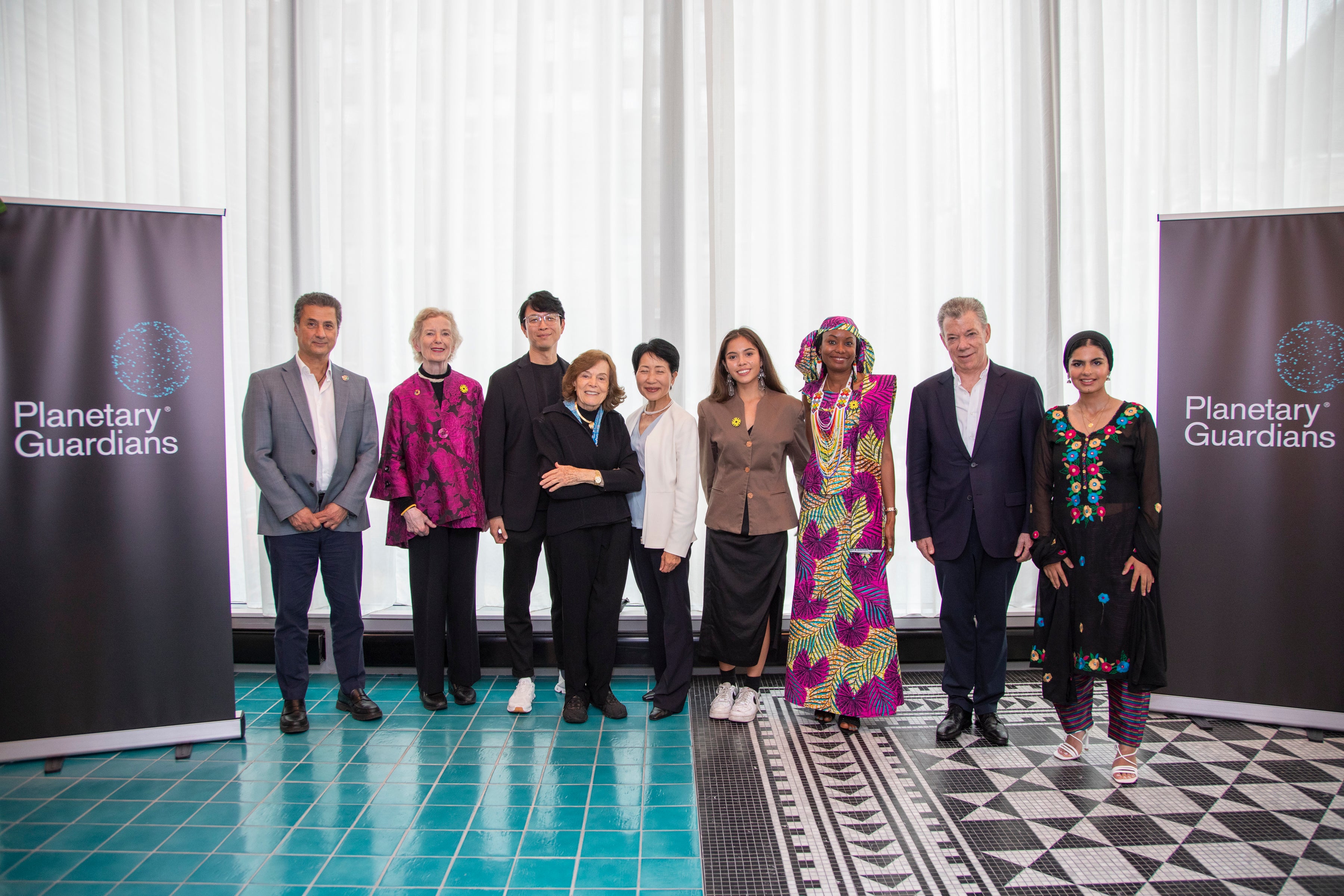‘Planetary Guardians’ are on a mission to give the Earth an annual check-up. The prognosis is dire
‘We have to get back to a real sense that we are nature, we’re not different from nature,’ former president of Ireland Mary Robinson told The Independent

Their title could be mistaken for the latest installment in the Marvel franchise - but unlike the movies, a Hollywood ending is far from guaranteed.
The “Planetary Guardians” - a new collective of world leaders, climate activists, business moguls and celebrities - announced on Monday plans to carry out an annual “check-up” on the planet’s health, then deploy these findings to try to influence how the UN and national governments go about safeguarding Earth.
The prognosis is far from rosy. Earth is beyond “safe operating space for humanity” in six of nine key measurements called “planetary boundaries” including climate, biodiversity, land, freshwater, and “novel” chemicals (like microplastics and nuclear waste), according to an update last week from the scientists who have been working on the project for 15 years.
To understand what is needed for a safe planet requires looking at the Earth as a complex, mutually dependent whole rather than in isolated parts, the researchers say.
“We need the world to listen to the scientific, holistic advice of what is happening to the broader ecosystems that sustain us,” Mary Robinson, the first female President of Ireland and chair of The Elders, an advocacy group founded by Nelson Mandela, told The Independent.
“We have to get back to a real sense that we are nature, we’re not different from nature. We’re not looking after what is helping us to sustain our future.”
Ms Robinson is a founding member of the group which includes former President of Colombia Juan Manuel Santos, the primatologist Jane Goodall, oceanographer Sylvia Earle, actor Robert Redford, and climate justice activists Ayisha Siddiqa and Xiye Bastida.
During a press briefing at New York’s annual “Climate Week”, Mr Santos said that his involvement was the continuation of fulfilling a mandate from Colombia’s Indigenous communities who asked him to make peace with nature when he became president.
“Because if we don’t, as the Indigenous communities told me, we will be the ones who suffer the consequences,” he said.
The planetary boundaries science has been developed by a team led by Professor Johan Rockström, of the Potsdam Institute for Climate Impact Research. In that time, the planet has fallen into danger zones in the majority of the categories with inevitable consequences for human populations.
And the interconnectedness of Earth means breaching safe levels in some areas could push others toward tipping points. “[T]he world is starting to recognize that we are risking things beyond climate... we’re risking the entire living biosphere,” Professor Rockström said.
He pointed to the beleaguered Amazon - already at 17 per cent forest loss - and warned that if it increases to 20 per cent, and the global temperature rises to 1.3 degrees Celsius (from the current 1.1C-1.2C), it might trigger an irreversible tipping point.
The urgency is why the scientists have “stepped up” and promised to do a planetary boundary health check every year, Professor Rockström said.
“And not only that [but] translate it in ways that it can be used by the Guardians but also by stakeholders across the world, from all walks of life. That’s a big challenge,” he added.
Among the flashing warning signs, there is a success story. The ozone layer, which was discovered to be alarmingly depleted in the 1970s, is expected to largely heal around mid-century after countries came together and adopted the Montreal Protocol - an agreement which banned 99 per cent of ozone-depleting substances.
It underlines what can be done, said Richard Branson, the billionaire founder of the Virgin group, who is an advisory council member.
“Knowledge is power so if we can measure what’s going on in the world accurately every 12 months, and have the best scientists doing it, then it’s going to be easier to change,” he said.
The mission is already being put into practice at the national level with New Zealand, Sweden, Finland and the Netherlands figuring out how to apply the boundaries framework to making decisions.
The framework is also providing a roadmap for the rebuilding of Ukraine which has sustained intense environmental damage due to the Russian invasion, said Robinson. The goal is to restore Ukraine with a focus to “building back green”.
”[The planetary boundaries] are not just up there at a distance, it’s actually a framing that can be used more and more to make sure that we are helping to maintain and deeply restore that balance as far as possible,” Ms Robinson said.
Subscribe to Independent Premium to bookmark this article
Want to bookmark your favourite articles and stories to read or reference later? Start your Independent Premium subscription today.

Join our commenting forum
Join thought-provoking conversations, follow other Independent readers and see their replies